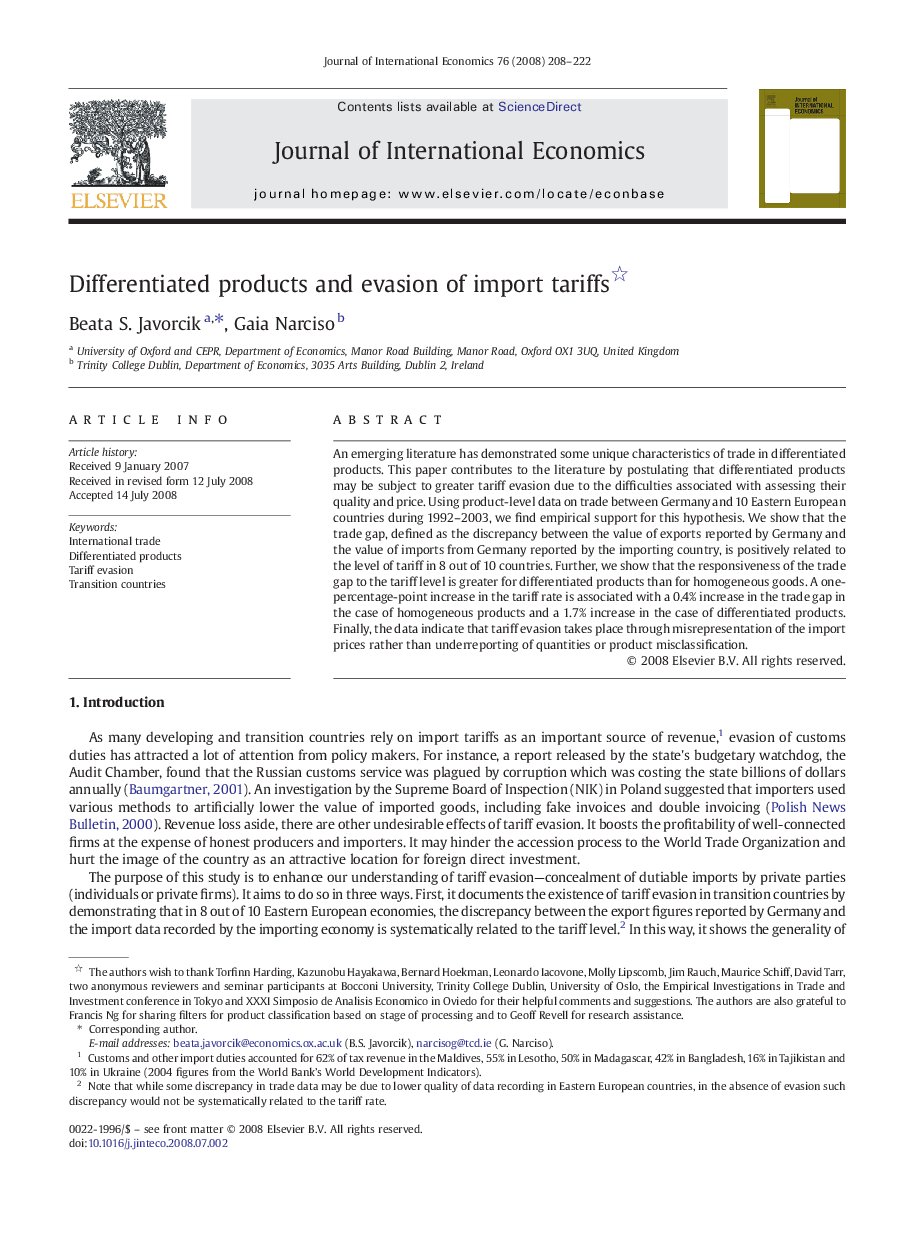| Article ID | Journal | Published Year | Pages | File Type |
|---|---|---|---|---|
| 962482 | Journal of International Economics | 2008 | 15 Pages |
Abstract
An emerging literature has demonstrated some unique characteristics of trade in differentiated products. This paper contributes to the literature by postulating that differentiated products may be subject to greater tariff evasion due to the difficulties associated with assessing their quality and price. Using product-level data on trade between Germany and 10 Eastern European countries during 1992-2003, we find empirical support for this hypothesis. We show that the trade gap, defined as the discrepancy between the value of exports reported by Germany and the value of imports from Germany reported by the importing country, is positively related to the level of tariff in 8 out of 10 countries. Further, we show that the responsiveness of the trade gap to the tariff level is greater for differentiated products than for homogeneous goods. A one-percentage-point increase in the tariff rate is associated with a 0.4% increase in the trade gap in the case of homogeneous products and a 1.7% increase in the case of differentiated products. Finally, the data indicate that tariff evasion takes place through misrepresentation of the import prices rather than underreporting of quantities or product misclassification.
Related Topics
Social Sciences and Humanities
Economics, Econometrics and Finance
Economics and Econometrics
Authors
Beata S. Javorcik, Gaia Narciso,
